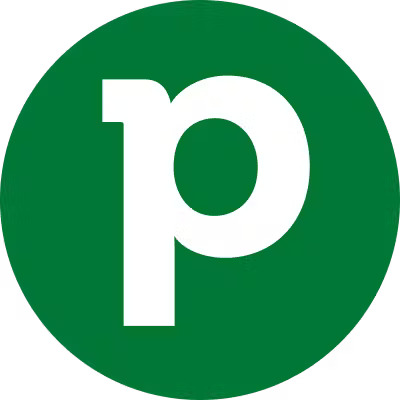Choosing the best CRM for contractors or construction companies can be challenging in a seemingly endless sea of platforms. The right construction CRM software can make it easier to streamline sales and forge stronger relationships with your clients. CRM software allows you to focus more on selling home construction projects and overseeing major client projects. Finding the best CRM for contractors can be tricky, but once you land on the appropriate solution for your business, it will become easier to maintain and grow.
In this article…
Top 7 construction & contractor CRM software
Some construction CRM software options include:
The right CRM platform for your business should have features that benefit your daily operations and are in tune with your business’s unique needs. Good CRM software for construction companies and contractors typically focuses on better managing company-wide email, project planning, bid tracking, and processing payments.
| Company | Starting Price (Per user/month) | Free Option | Quotation Tools | Mobile Option | Customer Service Type | Learn More |
| HubSpot CRM | $23 per user/month for the hub and $45 per month for two users | Yes | Yes | Yes | Online chat, email, and phone support available | HubSpot |
| Salesforce | $25 per user/month | No | Yes | Yes | 24/7 support only available on the unlimited plan | Salesforce |
| Pipedrive | $14.90 per user/month | No | Yes | Yes | 24/7 support available | Pipedrive |
| Insightly | $29 per user/month | Yes | Yes | Yes | Phone and email support available | Insightly |
| Houzz Pro | $65 per user/month | Yes | Yes | Yes | Chat and phone support available | Houzz Pro |
| SalesRabbit | $29 per user/month | No | Yes | Yes | Phone and email support available | SalesRabbit |
| BasisBoard | Information not provided by vendor | No | Yes | Yes | Phone and email support available | BasisBoard |
HubSpot CRM: Best overall construction CRM
Pros
Cons

Our Rating: 4.5/5
HubSpot CRM is an intuitive and easy-to-use software platform. While HubSpot offers tools and services for free right from the start, it also features flexible planning bundles that you can adopt and customize for your business. HubSpot’s tools are modular in nature and coincide with the growth of your company.
HubSpot CRM has become more intuitive and construction industry-friendly. It has enhanced its project management features and integrations with construction management software, such as CompanyCam, a photo-based communication solution created for contractors. These additions more effectively address the industry’s specific needs than in previous versions.
Having said this, HubSpot CRM could further enhance its construction-specific features, such as more advanced project tracking and on-site communication tools, to stay ahead of competitors like Salesforce and Zoho, which are continuously updating their industry-specific offerings.
Pipedrive: Best for sales pipeline management
Pros
Cons

Our Rating: 4.2/5
Pipedrive is another cloud-based CRM platform geared toward improving a company’s sales figures. This CRM is designed from the ground up to facilitate sales teams and is a more affordable option for small-scale businesses that would benefit from an easy-to-use and fully customizable software solution.
Pipedrive’s user interface is designed for simplicity and efficiency. Its customizable dashboard and easy navigation significantly benefit construction managers who need quick access to project data.
As the platform has progressed, it has emphasized its multi-channel data management and automation features. These improvements are particularly beneficial in the construction industry, because it streamlines access to project details, client communications, and workflow management, enhancing efficiency and decision-making across all stages of construction projects.
Lower-tier versions of Pipedrive can be limited, so your company stands to benefit more from paying extra for a higher-tier option. Like some other CRMs, Pipedrive also offers contact management, automation, anywhere access, and the option for mobile phone support.
SalesRabbit: Best for field sales tracking
Pros
Cons

Our Rating: 4.2/5
SalesRabbit’s user interface is designed with field sales teams in mind, offering an intuitive and responsive experience. This design choice significantly reduces the learning curve and enhances on-site productivity, a critical aspect for construction professionals often working in dynamic environments.
SalesRabbit tracks sales and lead management and is tailored for door-to-door field sales representatives. These professionals rely on the software to improve their sales performance and increase lead conversions.
While SalesRabbit excels in many areas, it could further enhance its offering by expanding its e-commerce compatibility and improving VoIP capabilities.
Basis Board: Best for bid management
Pros
Cons

Our Rating: 4.2/5
Basis Board is an efficient software platform intended for construction build management. It offers features that appeal to businesses that focus on commercial subcontractors, material vendors, and supply houses.
Basis Board offers a collaborative workspace that is free from tedious data entry. The software also successfully automates daily manual tasks, where repetition usually consumes time and resources.
To further solidify its position as the leading construction CRM for bid management, Basis Board could enhance its analytics capabilities and expand its range of integrations with emerging construction technologies. These improvements would provide subcontractors with even more robust tools to manage bids effectively and stay competitive in the dynamic construction industry.
Salesforce Sales Cloud: Best for customizable construction CRM
Pros
Cons

Our Rating: 3.9/5
Salesforce is especially useful for established companies wishing to streamline their sales processes through automation, which makes it easier to convert leads and maintain a healthy customer base.
For construction firms, factors like project management efficiency, data accessibility, and integration capabilities are paramount. Salesforce’s high scores in these areas (100 in document storage and 100 in API availability) highlight its alignment with these industry-specific needs.
This CRM includes many dedicated tools that work well, including a marketing product that offers full automation for email campaigns and keeps track of customer activity. In recent years, Salesforce has integrated advanced features like AI analytics and multi-channel support.
However, many add-on features can complement your business and make it run more efficiently. Smaller businesses will find the amount of money they’ll need to invest to get the most out of this cloud-based CRM may not fit their budgets.
There is no free version of Salesforce, so individual contractors and sole proprietors will likely benefit from an alternate CRM platform.
Insightly: Best overall CRM for construction contractors
Pros
Cons

Our Rating: 3.9/5
For construction contractors, the ability to seamlessly integrate project management with customer relationship management is paramount. Insightly’s design caters to this need more directly than others like EngageBay or Smartsheet, which excel in CRM or project management, respectively, but not necessarily in the integration of both.
Insightly is an easy-to-use CRM that allows businesses to create data fields and modules that, when optimized, can be used to oversee projects, manage events, and complete various tasks all within one platform. At its core, Insightly is a cloud-based CRM that makes managing your sales pipeline a cinch.
There are a variety of plans to choose from that will improve workflows and optimize regular tasks. This applies to tasks for marketing and sales teams working together on general projects and events.
However, while Insightly leads in many aspects, it could further strengthen its position by enhancing its AI analytics and collaboration tools, ensuring it remains at the forefront.
Houzz Pro: Best for payment scheduling and invoicing
Pros
Cons

Our Rating: 3.4/5
Houzz Pro is primarily designed for home builders, remodelers, and contractors. It offers an all-in-one marketing and client management tool to help with online advertising, profile customization, and lead generation. Team members can directly collaborate with their clients using a simple dashboard that configures estimates and creates useful design templates and 3D floor plans for future projects.
Houzz Pro has evolved significantly through its updates, particularly in enhancing its invoicing and payment features. Earlier versions focused more on general CRM functionalities, but recent updates have seen a shift towards specialized construction industry needs.
The platform’s primary areas of improvement are AI analytics and multi-channel support, making it a stronger competitor to comprehensive CRM solutions like HubSpot.
Choosing the best construction & contractor CRM software solution
The best CRM for contractors or construction will depend on the size of your business, its budget, and whether a given software system addresses the issues your business is currently facing.
HubSpot is a great all-around CRM platform that over-delivers on its free plan. While you can opt for HubSpot’s paid plans with added tools and features, most contracting businesses will have a great starting point with its free CRM plan.
While costly, Salesforce is a CRM aimed at established businesses with larger budgets and is fully customizable, with powerful add-on tools available. Similarly, Pipedrive supports robust third-party add-ons, as does Insightly, which comes complete with full-tool integration.
Houzz Pro is a great option for online advertising, profile customization, and industry-specific tools. It’s also excellent for team collaboration. BaisisBoard is another great option for automation and eliminating overhead. For door-to-door in-field sales, you’d be hard-pressed to find a better CRM than SalesRabbit.
Looking for the latest in CRM solutions? Check out our CRM Software Buyer’s Guide.

About the author